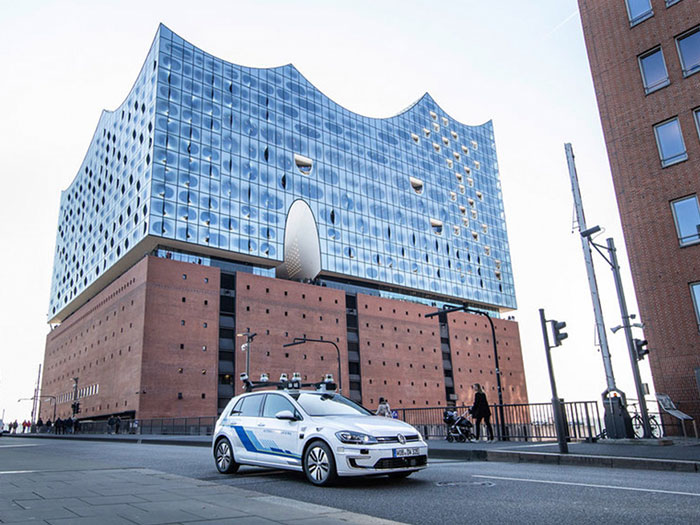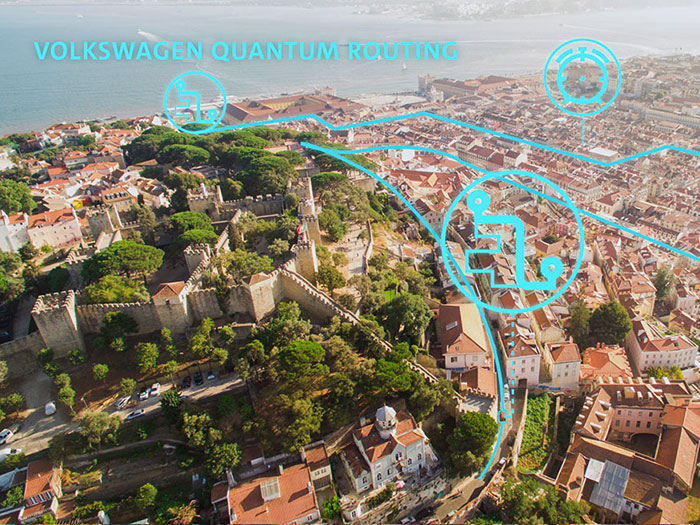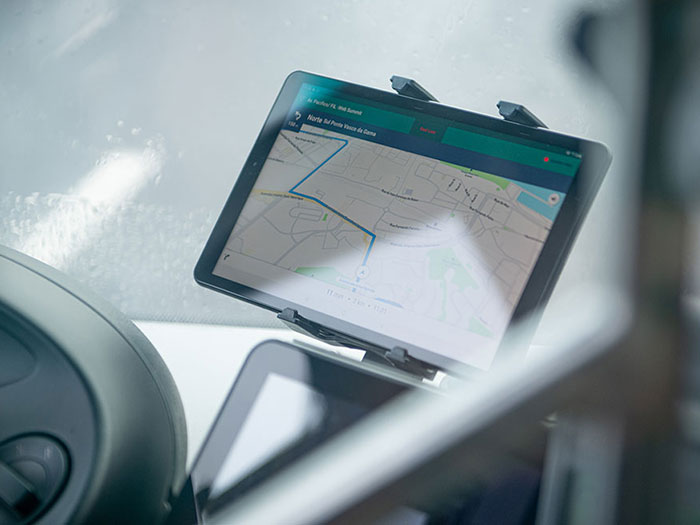Working with cities on a smart, sustainable mobility
Volkswagen Group is focusing on strategic partnerships with cities to address the challenges of urban mobility.
How will we move around cities – in the narrowest of spaces - in the future? Mobility on demand, carsharing and micromobility: these are just three answers to the question, with many solutions already available to citizens. The Volkswagen Group is working with 12 cities worldwide to ensure that innovative ideas can be tested for their practicability. These include Hamburg, Barcelona and Lisbon.
Hamburg - the city of the future

The partnership with Hamburg began in 2016 and has recently been extended for a further three years. A number of successful projects have come out of the partnership, including autonomous parking at the airport and the establishment of MOIA’s pioneering ride-sharing service. Hamburg even has a test track for automated and networked driving, and in spring 2020 WeShare, the Group’s pure electric carsharing service, will be launched in the city with over 1,000 vehicles. The infrastructure for electric mobility has also now been increased to over 1,000 publicly accessible charging points.
With this partnership, Germany’s second city is pursuing a clear goal. Hamburg wants to become a model city for urban mobility of the future. And for this you need a strong partner like the Volkswagen Group with its commitment to introducing new mobility concepts and reducing emissions. That’s also why the Group will be a main partner of the ITS World Congress, the largest specialist congress for intelligent transport systems, held in Hamburg between October 11-15, 2021.
Lisbon's intelligent bus fleet

In Portugal, too, Volkswagen Group is working with the City of Lisbon and the CARRIS public transport network to test its own mobility solutions. “We want to take the next step towards improving urban mobility ecosystems through new technologies. Close cooperation with local authorities is a key success factor here - it allows us to develop a holistic view of how we can properly address the challenges facing cities and commuters,” explains Nicole Magiera, Head of New Business at Mobility Data:Lab.
“The last project promoted a real-time solution for dynamic routing on three express bus lines specifically designed for the WebSummit event and connecting specific areas in Lisbon to the venue. A comprehensive data analysis was used to forecast appropriate stops in the city and to determine the frequency of services,” explains Miguel Gaspar, Deputy Mayor of the City of Lisbon.
In order to reduce the travel time of passengers even at peak times, a quantum computer was used to calculate the optimal routes. “Compared to regular fixed routes, this saves many minutes and makes public transport faster and more attractive. Passengers no longer have a lot of hassle – the bus stop is close to their hotel, the bus arrives at the time they need it and the journey is fast because of intelligent navigation,” says Gaspar. The company’s developers designed the system so that it could be used in any city of any size. It can even be adapted for other forms of transport, including taxis.
Mobility in Barcelona

SEAT is at the cutting edge of digital technologies, which are also at the heart of its partnership with the city of Barcelona. At the Smart City Expo World Congress, SEAT presented its new business unit, SEAT Urban Mobility, the new electric e-scooter and the results of its collaboration with the Spanish Directorate General for Transport (DGT): the DGT 3.0 initiative. This pilot project enables cars to communicate in real time with the city’s traffic lights and aims to improve safety and traffic flow.
“We want to become an ally for today’s cities by redesigning urban mobility and offering innovative solutions. To achieve this, working with cities is crucial,” says Lucas Casasnovas, Head of Urban Mobility at SEAT. In the near future, the new SEAT E-Scooter and the next generation of the SEAT e-Kickscooter will also be seen on the streets of Barcelona.
A working approach
The aim of Volkswagen Group’s city partnerships is clear and simple: to jointly find practical solutions for mobility in metropolises. This approach means it is possible to build a framework in which innovative projects can be developed and implemented. More than 50 percent of the world’s population already live in cities – by 2050, the figure is expected to rise to 70 percent. Therefore, city partnerships are fundamental in the journey towards a form of urban mobility that is efficient and sustainable.
Source: Volkswagen AG
